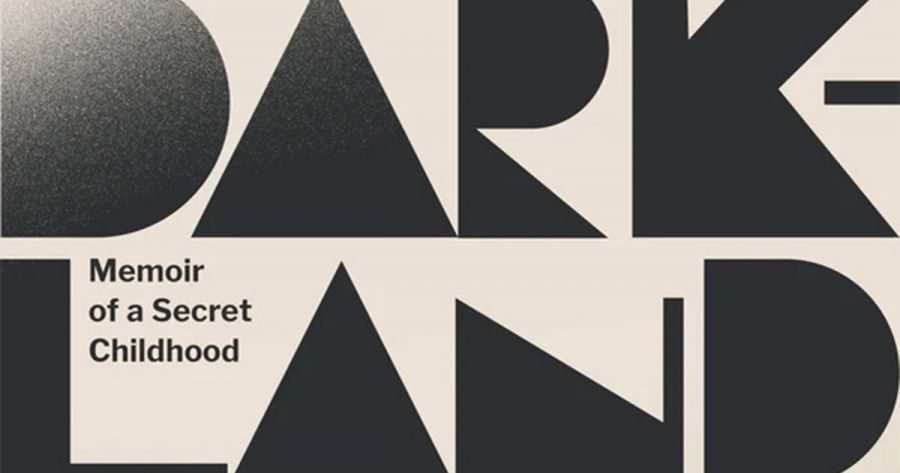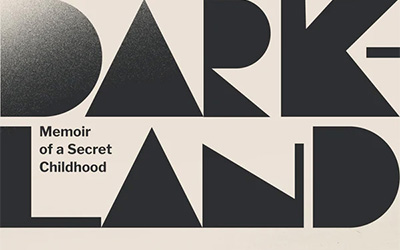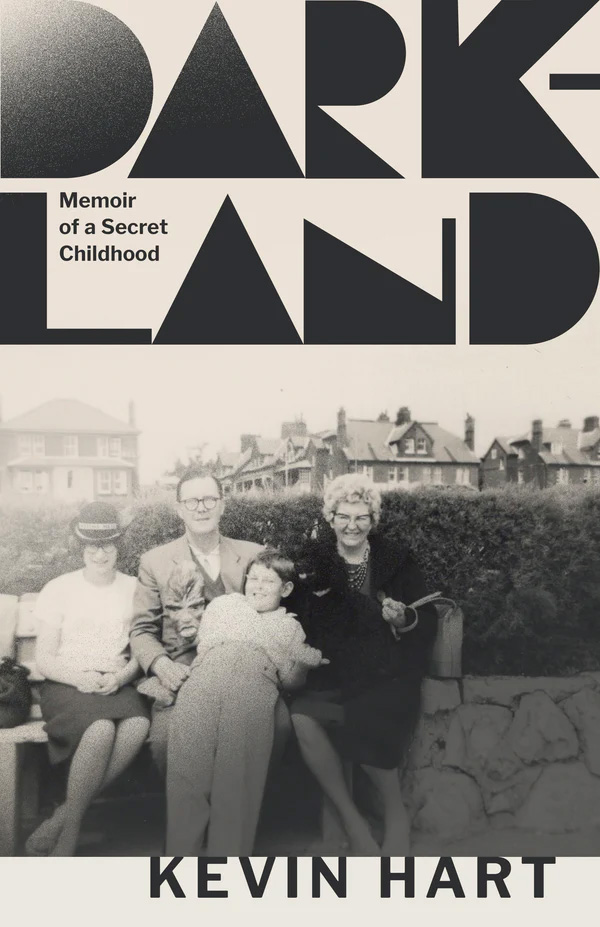
- Free Article: No
- Contents Category: Memoir
- Review Article: Yes
- Article Title: Damascene moments
- Article Subtitle: A book about split psychological selves
- Online Only: No
- Custom Highlight Text:
Kevin Hart’s Dark-Land is the memoir of a distinguished poet and scholar who was born in England in 1954, moved with his family to Queensland when he was eleven, and migrated again in 2002 to the United States, where he is currently Professor of Christian Studies at the University of Virginia. Dark-Land is well-written and amusing, with memorable vignettes ranging from his time in a London primary school to his bonding as an Australian teenager with his cat Sooty. On a wider spectrum, though, Dark-Land addresses more weighty concerns around time, memory, and intellectual or religious illumination. He recalls as a child listening to a BBC performance of the allegorical journey invoked in John Bunyan’s Pilgrim’s Progress, and he describes himself now as ‘still clambering up the hill I had known since childhood in London’. The title of his memoir signals this putative passage from darkness into light.
- Featured Image (400px * 250px):

- Alt Tag (Featured Image): Paul Giles reviews ‘Dark-Land: Memoir of a secret childhood’ by Kevin Hart
- Book 1 Title: Dark-Land
- Book 1 Subtitle: Memoir of a secret childhood
- Book 1 Biblio: Paul Dry Books, US$19.95 pb, 250 pp
- Book 1 Cover Small (400 x 600):

- Book 1 Cover (800 x 1200):

Things improve, however, when Hart’s parents move as ‘ten quid migrants’ to the ‘syrupy heat’ of Queensland. Here, free at last from bullying London schoolmasters, the author experiences, like Saul on the road to Damascus, a wondrous clearing of his mental ‘fog’ during a mathematics class at Oxley State High School. This ‘academic transformation’ enables him henceforth to see the world ‘in sharp relief’. Abandoning his meagre earlier ambition to be a chef in London, he believes he has discovered a new mathematics theorem, which he boldly names ‘Hart’s theorem,’ though he is brushed off by a professor at the University of Queensland who gently informs him that for academic algebraists this equation is old hat. Nevertheless, having acquired a copy of Wallace Stevens’s poems for twenty-five cents and the gift of a Bible from his parents, the author extends his intellectual compass to the worlds of poetry and religion, developing a particular interest in the Southern Baptists and eventually becoming confirmed in San Francisco as a member of the Anglican Church. This also puts him ‘well on my way to becoming Catholic’, which he aptly describes as ‘another migration’. He admits to still feeling sick at the memory of his London schools, saying that ‘I have written these words in order to be rid of that feeling, if possible’, so this memoir is presented partly as a form of catharsis.
Such an emphasis on self-therapy, however, ensures a subjectivist focus that militates against any attempt at objective representation. This is primarily a book about split psychological selves and the intellectual process of conversion, the metamorphosis of one state into another, though these transformations are interwoven with twists of time that, for the narrator, bind together past, present, and future. Emigration is the most visible and obvious aspect of this trajectory, with the book being divided almost equally into two halves, the first focusing on England, the second on Australia. But its overarching theoretical perspective derives more from America, predicated as it is upon a retrospective vantage point from which Hart describes his lifelong quest to evade the ‘looming grayness that threatened to engulf me forever’. It is this estrangement that gives him the power to choose Catholicism ‘of my own free will’, with this intellectual freedom being presented as different in kind from the world of his father, for whom ‘all churches were basically the same’.
Yet such an idealisation of transcendental freedom carries its own risks of self-delusion and blindness, something that Hart recognises when he refers here to ‘the self-righteousness of a convert’. The way he volitionally exchanges religions as well as countries is categorically different from how most people internalise religion and country as ingrained habits or inheritances, and Hart is smart enough to appreciate how these cultural variations manifest themselves. Dark-Land is an intensely self-conscious work, whose self-deprecating irony is trained on authorial perspectives as much as on the corrupt material worlds he inhabits. He acknowledges how his own childhood was ‘composed of silences, of things withheld’, and several long-standing family secrets are revealed towards the end of the book. More broadly, though, Hart’s own narrative is haunted by the limits of language and representation, their tendency to always come up against walls of silence. In this sense, the memoir is entirely compatible with the negative theology that Hart has explored in his academic writings on religion and in his poetry, where in ‘Facing the Pacific at Night’ he evokes ‘the darkness between two stars / Or between two thoughts’.
 Kevin Hart (Sashanna Hart via Paul Dry Books)
Kevin Hart (Sashanna Hart via Paul Dry Books)
Despite its dense (but mainly latent) theoretical infrastructure, this is an eminently readable autobiography. Its most obviously accessible features turn on recollections of class-ridden East London in the early 1960s, which is contrasted with the more easy-going manners of Brisbane, where his parents, with the constitutional anxiety of migrants, are fearful of complaining about the school bus driver who regularly repairs to the pub during his daily runs, in case they should ‘upset the apple cart’.
What differentiates Dark-Land is its focus on the narrator’s ‘solitude’ and ‘inner life’, from which he surfaces ‘only every so often, like a train coming out of a long tunnel before disappearing into another’. If he had been a child in Oxley today, such unsociable behaviour would no doubt have seen him diagnosed as autistic and enrolled in the NDIS. Yet the idiosyncrasy of these inversions and displacements, both geographical and intellectual, make for a thoroughly engaging memoir as well as a significant, if somewhat oblique, contribution to Hart’s impressive academic oeuvre. Returning to ‘the two dark schools’ of his London childhood, he says he has got to know the East End better as an adult than when he was a boy, and this exemplifies Hart’s characteristic idiom of rhetorical doubling, the philosophical recursion to a prior condition in order to explicate it more lucidly. Hart records how as a faculty member at the University of Virginia he walks every day past the room where Edgar Allan Poe was an undergraduate in 1826, and something of Poe’s interest in ‘encrypted’ secrets and the ways in which memory will characteristically ‘adjust itself to fit our sense of the past’ resonate through Hart’s equally elusive and engagingly self-reflexive narrative.


Comments powered by CComment